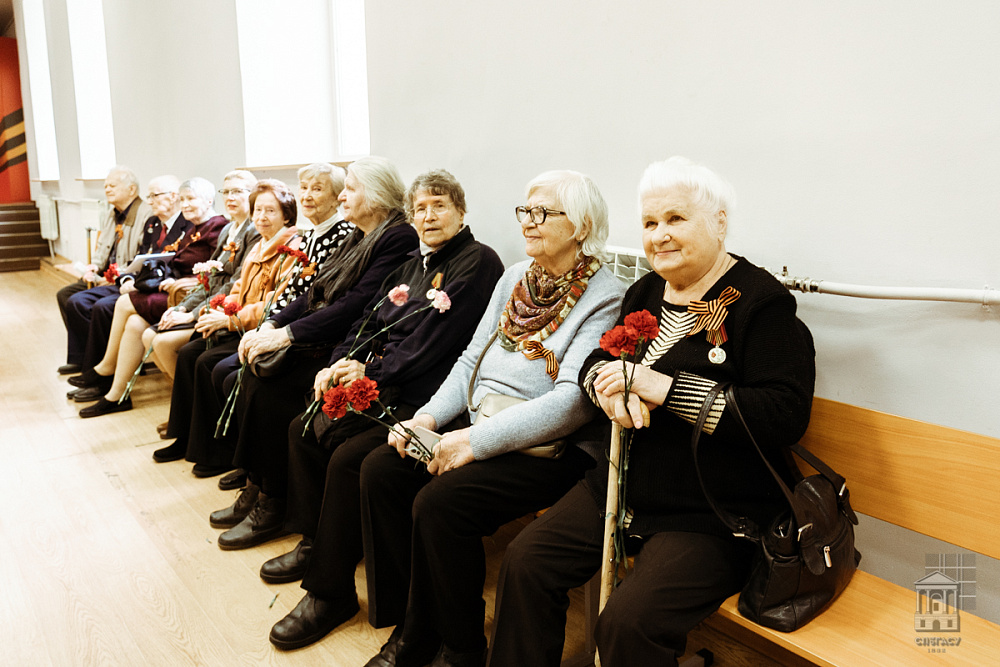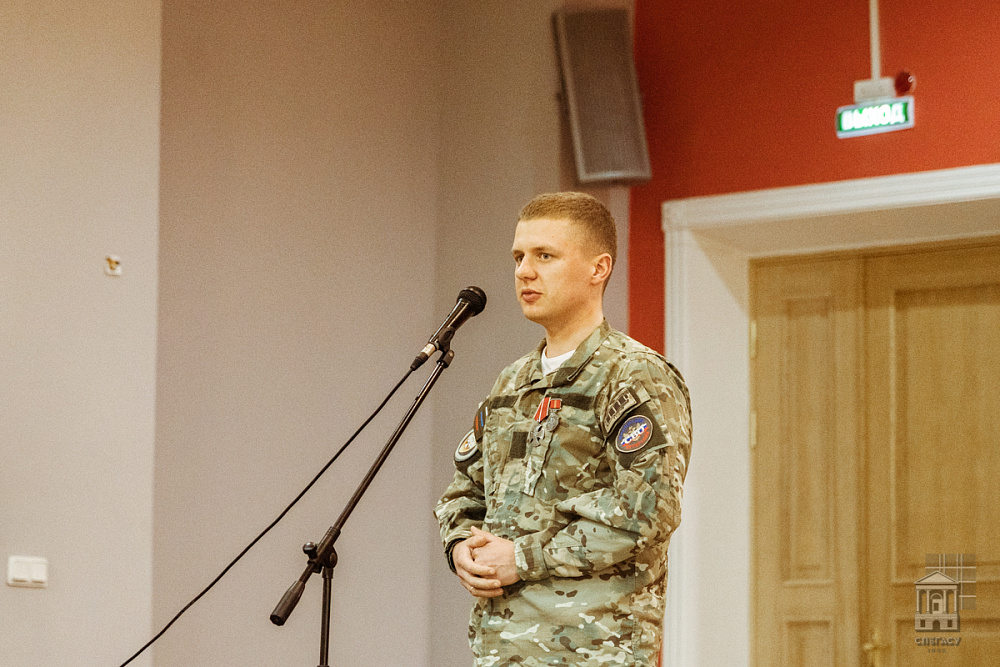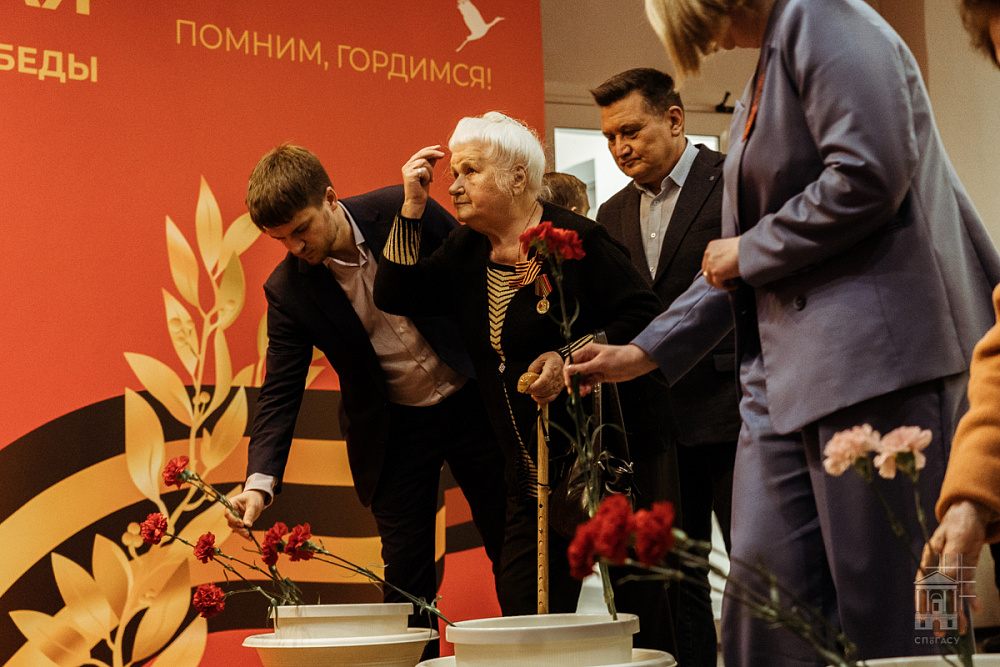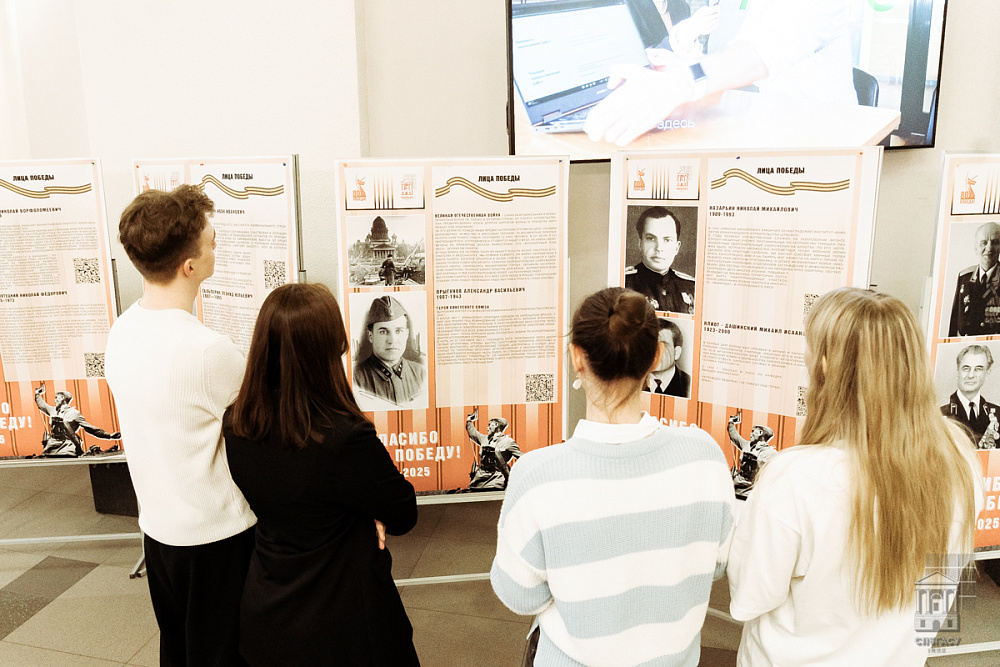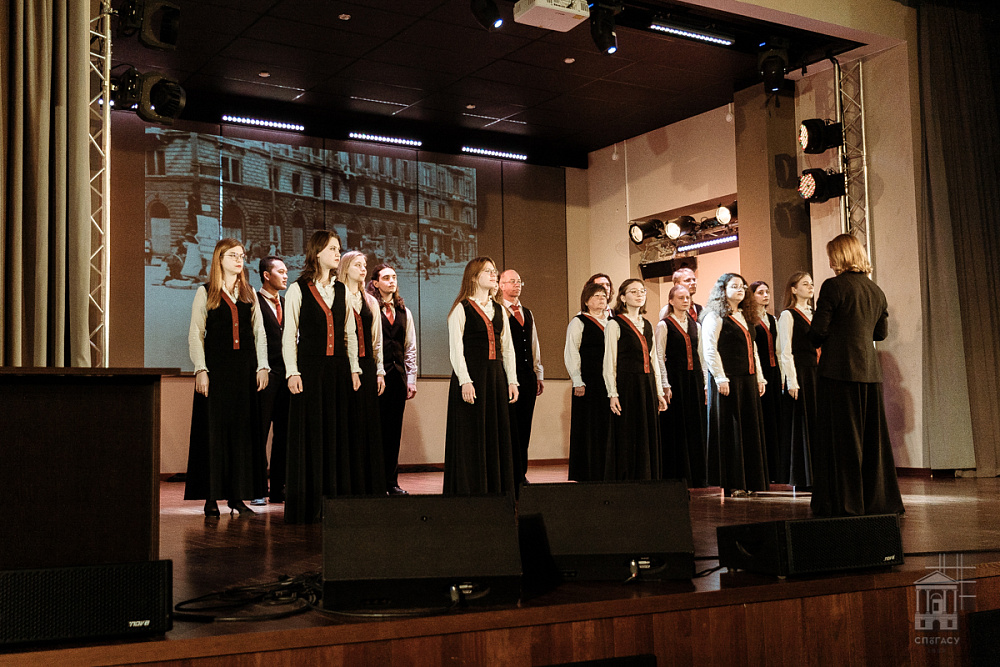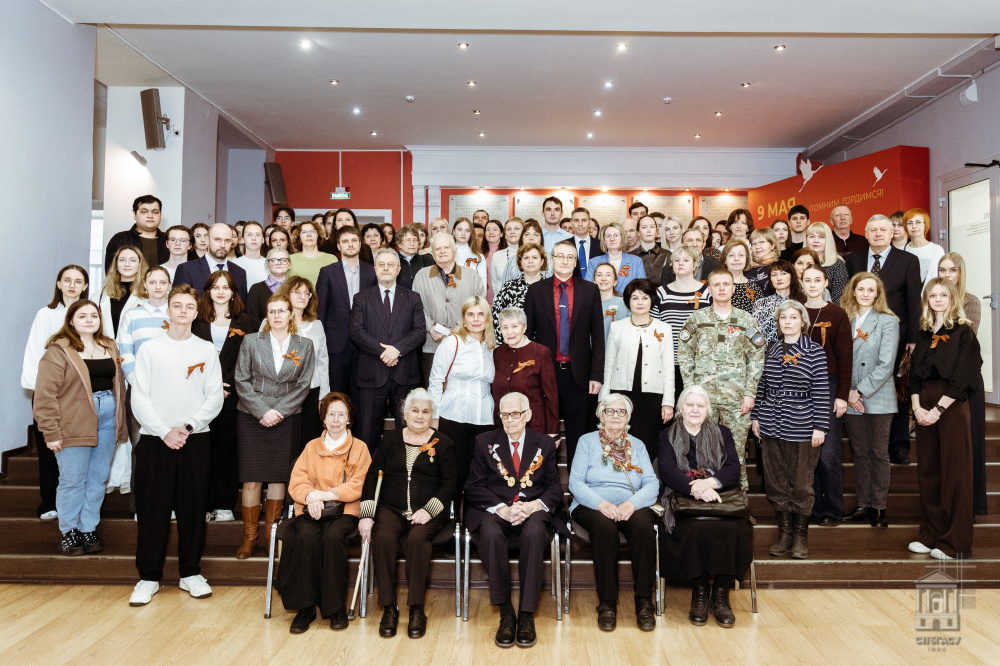 Participants of the memorial event
Participants of the memorial event
SPbGASU held a memorial event dedicated to the 80th anniversary of the Victory in the Great Patriotic War.
Our university greeted the participants of the celebration with the wartime music. The veterans shared their memories.
Zoya Ivanovna Kruglova taught French at LISI (SPbGASU) for 41 years and headed the trade union. When the war began, Zoya Ivanovna lived in Vyshny Volochok and was the first-grade pupil. “My father was at war, my brother was at war, my sister also volunteered for the front. My mother and I were left alone. As the Germans approached, we had to evacuate – first 20 kilometers to the village of Golovkino, then to another village where my father’s sister lived. There I went to second grade. It was three-kilometer walk to school… Then we returned to Volochok.
I remember Victory Day very well. It was a clear sunny day. I got up, my neighbor was running and saying – the war is over, victory! At school, the teacher told everyone to go to the city center, there would be a celebration there. We were very happy that the war was over. We danced, and grooved."
Aleksandr Matveevich Maslennikov first entered the walls of our university 75 years ago, in 1950, as a student. He had A's in all subjects. During his studies, he received only one B, and that was because he was ill. Then – postgraduate studies, defending a candidate's and doctoral dissertation. Aleksandr Matveevich was one of the first in our country to introduce the matrix form of calculation of building structures and the finite element method into the educational process, he headed the Department of Structural Mechanics of our university for 25 years, and was Vice-Rector for Research.
At the beginning of the war, Aleksandr Matveyevich was 14 years old. At 15, he went to work and worked on a ship of the Belsk River Shipping Company in Bashkiria throughout the war. Aleksandr Matveyevich jokes that his job title suited his last name very well – he was an oiler (oil - maslo in Russian) in the engine room. Aleksandr Matveyevich celebrated Victory Day in the firebox of a steamboat boiler.
“There were three people on watch in the engine rooms. The mechanic was the chief. I was the oiler. And the third was the stoker. It was dark to go back to the city, we had to spend the night somewhere. It was cold in the steamer itself. We cleared the boiler firebox of ash, threw in rags – one of our materials that we used to clean the mechanisms so that they would work smoothly. And we spent the night right in the firebox. Suddenly the whistle blew. They were shouting – victory, victory! They announced that we had won, the war was over.”
 Speech from Marina Malyutina
Speech from Marina Malyutina Marina Malyutina, Vice-Rector for Youth Policy, spoke about our university's contribution to the Victory. More than 950 students, postgraduates, teachers, employees and graduates of LISI went to the active army, to hospitals, medical battalions, and air defense units. Teachers and professors designed and supervised the construction of pillboxes, bunkers, and other defensive structures outside the city, camouflaged military facilities and architectural monuments. It was largely due to their efforts that not a single monument was destroyed during the 900 days of the siege. From March 1942 to August 1944, the institute's staff was evacuated, where scientific research continued and the educational process did not stop. In 1945, the Leningrad Civil Engineering Institute was awarded the Order of the Red Banner of Labor. Many teachers, employees and students were awarded medals "For the Defense of Leningrad".
Marina Viktorovna is sure that the memory of the war is a powerful factor in uniting people and forming national unity. "The exploits of previous generations are a moral guideline that inspires us to new achievements and hard work. We at SPbGASU will continue to preserve and increase the memory of the generation of victors and their legacy, educate highly qualified civil engineers and architects who will strengthen the sovereignty of our country with their work."
The Chairman of the Regional Public Organization "Association of Veterans of the Special Military Operation "Defenders of the Motherland"" Georgy Zhuravlev spoke to the participants of the memorial event. He told about the exploits of his family members during the Great Patriotic War and noted: through the stories of his loved ones, he understood what fascism brings to this world, so he went to the SMO. He took part in military operations near Kharkov, was seriously wounded, and was awarded the Order of Courage. Georgy Zhuravlev emphasized: now, when our country is facing new challenges, we are obliged to win the war against the new Nazism.
The participants of the solemn ceremony observed a minute of silence in memory of the fallen defenders of the Motherland and laid flowers at the memorial plaques on the balustrade of the main building of the university. A concert prepared by the "Kirpich" Student Creativity Club took place in the assembly hall.
The lower balustrade placed an exhibition entitled “Faces of Victory”, dedicated to the teachers, students, and graduates of our university who fought during the Great Patriotic War or worked in the rear, performing the most important tasks for the country.
Aleksandr Vasilyevich Prygunov (1907–1943) – Hero of the Soviet Union, graduate of the Institute of Municipal Construction Engineers (as our university was then called) in 1936. From the end of 1941, he commanded a sapper platoon on the Karelian Front. From May 1943, he took command of a sapper company, which distinguished itself in equipping three bypasses and restoring two bridges across the Lisenok River in the Gaivoronsky District of the Kursk Region, ensuring the timely passage of all divisional cargo.
In the autumn of 1943, the brigade was tasked with forcing the Dnieper with assault troops. On the night of 27 September, 1943, the company's grenadiers ferried the first assault troops across the Dnieper, quickly set up a ferry crossing and began delivering artillery, ammunition and soldiers. The enemy opened fierce artillery and mortar fire on the crossing. Most of the boats were damaged, but Senior Lieutenant Prygunov, organizing repairs to the watercraft, and his soldiers continued to selflessly work on the crossing and the two surviving boats. Fierce fighting continued for two days. Despite the losses suffered and the lack of ferry equipment, Prygunov's sapper company, under enemy fire, transported 17 artillery pieces, 117 boxes of ammunition, 557 soldiers and officers, as well as a large amount of other military equipment across the Dnieper in two nights. On 29 September, 1943, A. V. Prygunov was mortally wounded in the chest by a shell fragment.
For exemplary performance of combat missions, Senior Lieutenant A. V. Prygunov was posthumously awarded the title Hero of the Soviet Union.
Ivan Ivanovich Solomakhin (1908–1989) is a graduate of the Leningrad Institute of Municipal Construction (another name for our university). In early 1943, Solomakhin’s battalion took part in Operation Iskra on the Leningrad and Volkhov Fronts to break through the blockade, and in the summer in the battles for the Sinyavin Heights. During battles with his battalion of sappers, using cold weapons, he was able to capture the “Devil’s Height,” which had been fought for over a year. As a result of the surprise attack, several hundred fascists were killed and 120 were captured. The engineering battalion lost 16 people killed and 26 wounded. He was awarded seven orders and three medals. A passage in the Kirovsky District of St Petersburg is named after Ivan Solomakhin.
In addition, the exhibition "The University During the War Years", prepared by the SPbGASU History Information Center, is open in the university museum (room 213). Everyone is welcome to visit it.





